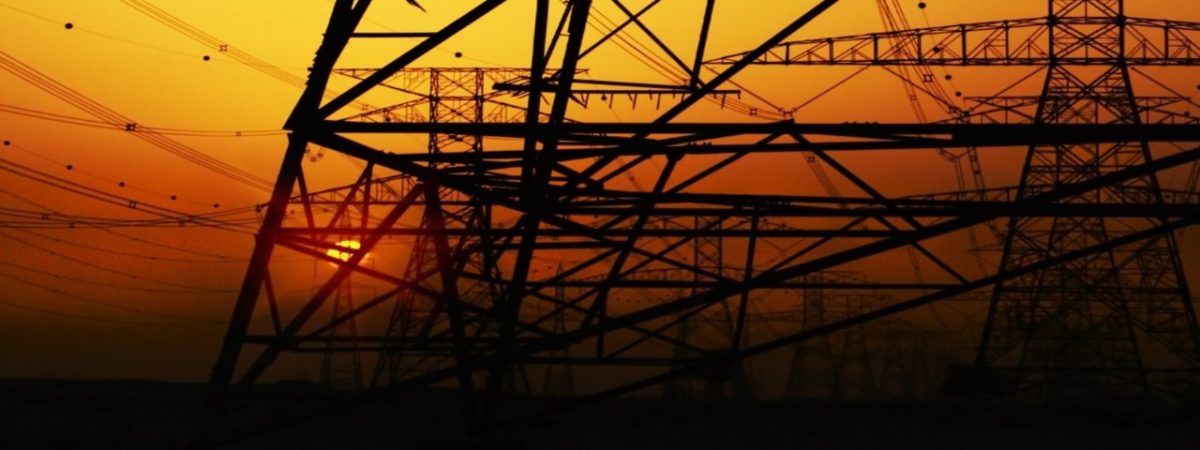Why there should be no such thing as “public service broadcasting”
SUGGESTED



The concept of “public service broadcasting” might have been justifiable at one time: it is no longer. The vested interests that want to protect the current funding model of public service broadcasting have subtly changed the meaning of the term as earlier meanings have become irrelevant. This is clearly a process of ex-post rationalisation designed to protect those vested interests.
The television licence fee evolved out of a system whereby the post office working with radio manufacturers charged owners of radio sets to receive programmes. It was designed to create a hypothecated charge to overcome the “public good” aspects of broadcasting. Public goods are not excludable (so it is difficult to stop people who do not pay from benefiting from them) and non-rivalrous (that is the marginal cost of serving an additional user is close to zero). Given the available technology until the 1980s, a plausible case could be made that broadcasting had these qualities.
In addition, because of spectrum scarcity, it was argued that broadcasting had the attributes of a natural monopoly. However, in a series of papers, largely by Ronald Coase, the natural monopoly argument was firmly debunked in the 1950s. It is clear that competition through the provision of additional television channels and the development of cable television was restricted by regulation and not by natural monopoly characteristics.
Individual programmes and channels are now clearly excludable.
As such, those promoting state intervention in so-called public service broadcasting have some up with new definitions and justifications which are spurious.
Ofcom argues, for example, that public service broadcasting should (inter alia) inform our understanding of the world through news, information and analysis of current events and ideas; that it should make us aware of different cultures and alternative viewpoints, through programmes that reflect the lives of other people and other communities, both within the UK and elsewhere; that it should be well-funded and well-produced; and that it should be original new UK content rather than repeats or acquisitions.
These objectives and characteristics make no obvious sense. For example, public service broadcasting is supposed to inform our understanding of the world and stimulate learning. Why, then, does it have to be original UK content? Can the objective not be achieved through overseas programmes or even repeats? Arguably, Kenneth Clarke’s Civilisation, still available from BBC iPlayer, informs our understanding of the world and fulfils any reasonable definition of public service broadcasting. Why does public service broadcasting have to be well-funded as well as well-produced? Is it not enough for it to be well-produced? I should add that these ideas are mission creep. They are not in the statutory remit given to Ofcom.
The fact that broadcasting can provide a useful educative and cultural function does not justify the existence of the BBC in its current form or other interventions in public service broadcasting. Effectively, the BBC receives £4bn through a television tax – much more if you add the value of its free spectrum.
There are, then, two key policy questions. What should we do about public service broadcasting and what should we do about the BBC (the primary vehicle for public service broadcasting)?
Eliminate the concept of “public service broadcasting” as an arm of policy
The answer to the first question is that in public policy terms, we should simply forget about broadcasting. There is no distinct legitimate government policy sphere headed “public service broadcasting” for which a separate set of policy tools is needed, though broadcast content might well be the appropriate policy means of achieving desired ends in areas such as education, arts, culture, community cohesion etc. For example, it might be reasonable for universities, the arts council or a chain of academies to use taxpayers’ money to commission broadcast content, in the same way that they would commission books or exhibitions. Parliament would, no doubt, like to pay some entity to broadcast its proceedings, but there is no reason for this to be wrapped up with public service broadcasting obligations, still less to be given as a responsibility to the state’s own TV channel.
Quite simply, there should be no public policy box marked “broadcasting”. It is an outdated concept in the world of streamed videos, iplayer, pay TV, video blogs, and so on. Just as we do not have a “national books policy” or “national intellectual magazines policy” (still less a national “educational websites policy”) we do not need a national broadcasting policy as such.
Indeed, it is very clear that the market alone is quite capable of achieving the objectives desired by public service broadcasting. There are over 500 free-to-air channels providing the kind of content that would, if produced by the BBC, be defined as meeting public service obligations. The ability to reach international audiences means that economies of scale can be obtained from producing the most esoteric and cultured content.
Turn the BBC into a club
The answer to the second question is that the BBC should no longer be an arm of the state. Indeed, given that public service broadcasting is a defunct concept, there should be no state broadcaster or involvement in broadcasting any more than there should be a state book publisher.
The BBC is privileged in the proper sense of the word in that it is exempt from the usual competition laws that apply in the UK and state-aid rules that apply in the EU. It is able to use its position as a recipient of income generated from what is effectively a hypothecated tax to compete with commercial providers both in the public service sphere (in so far as that concept can be defined) and in the commercial sphere.
Now that both individual programmes and channels can be encrypted and made excludable, the appropriate, and sustainable, way of funding the BBC is via subscription, either on a period basis or pay-per-view or a mixture of the two.
This could be done in two ways. It could be fully privatised on a commercial basis. Perhaps a more appropriate (and certainly more politically feasible) way would be to turn the BBC into a subscriber-owned club, rather like the National Trust (as proposed by Prof. Sir Alan Peacock). Anybody would be free to watch any other television or streamed content without paying for the BBC if they wished. But to watch the BBC, you would have to be a member or pay for individual programmes. The BBC could then exploit its commercial freedoms and use profits to reduce costs to subscribers.
As part of this process of removing broadcasting from the remit of government policy, the BBC should lose its privileges. It should be subject to competition law like other broadcasting organisations. For example, allowing the BBC to have 75 per cent of the televised news market would not be tolerated in relation to any other provider: it should not be tolerated in the case of the BBC.
- Recommended further reading: ‘In focus. The case for privatising the BBC‘, edited by Philip Booth
5 thoughts on “Why there should be no such thing as “public service broadcasting””
Comments are closed.





… there should be no state broadcaster or involvement in broadcasting any more than there should be a state book publisher.
So you don’t like HMSO either?
I agree, the technology is available and this would easily allow channels or individual programmes to be encrypted.
There is no justification for the BBC’s current funding model. It is, as you say, a tax.
However, it is a tax that you can opt out of, albeit that it is a slightly tedious process (made deliberately so, I suspect) . All you have to do is state that you do not watch / receive BBC content. Here are a few links:
https://tv-licensing.blogspot.com/2014/10/tv-licensing-no-licence-needed.html
https://www.tvlicensing.co.uk/check-if-you-need-one/topics/telling-us-you-dont-need-a-tv-licence
The first is an interesting blog. The second is the official site for “de-registering”………remember to wait for confirmation, then cancel your direct debit, and then save that money every month!
Thanks.
Regards,
M.
we do not need a national broadcasting policy as such
I think Philip has called this wrong. Yes, I’m all for decoupling the State from appointments to the Trust that governs the BBC, and I think Philip would agree with that. But he goes further, and asserts that his opinion should prevail over that of others who don’t share it, and hasn’t given a supporting case to trample on their preferences. Imv, Philip has lost sight of one of the rallying cries of calls for freedom everywhere since 1776, that there should be accountability, that the people who pay the taxation should have some representation.
The people who decide where the BBC goes next should not be the government, and not the comment writers for the IEA either but the licence payers who have their pockets lifted under threat of court.
The status quo is a kind of utopia for BBC apparatchiks, since it leaves them free to define and redefine their remit, as required to fend off any particular criticism of their content. Moreover, their imperialism means they can use their vast resources to extend into any new area or new medium they choose: hence, iPlayer, BBC Sounds etc etc., in the meantime choking the life out of the unsubsidised competition. Advertising? Yes, it’s very annoying – the BBC does so much of it, trumpeting its own supposed virtues at every possible opportunity. Its self-regard is unlimited. Its management is an unaccountable, self-perpetuating oligarchy, and it’s high time it was reined in.
As far as BBC funding is concerned, I never cease to be amazed at how ready people are to swallow a Poll Tax provided it’s labelled a Licence Fee. Margaret Thatcher missed a trick there!
Well if your in favour of living in a right wing dont ask any questions of government sort of world yes scrap public broadcasting.